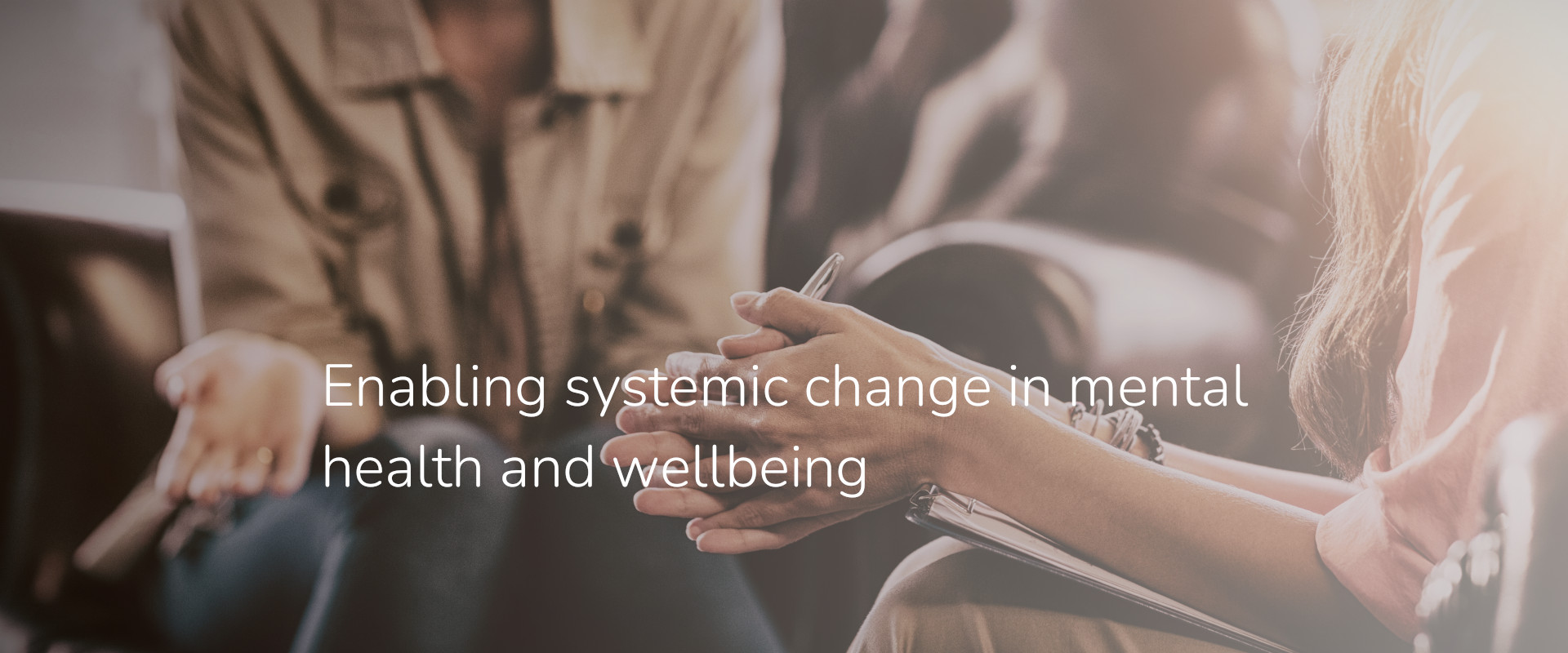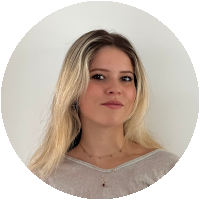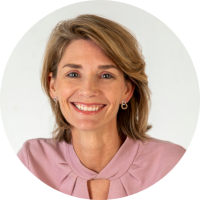Our purpose is to enable the widespread adoption of Open Dialogue in Australia.
Our vision is that all people experiencing mental distress are able to navigate challenges with the support of their community, family, carers and friends.From the international evidence, we know that Open Dialogue has the potential to be transformative.
Open Dialogue is an approach that creates the conditions for people to thrive through:
Agency and voice so that people can direct their own prevention and recovery pathways.
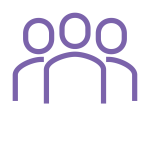
Facilitating connections with family, and social networks in their community.

Compassion and consistency in care that brings together all the supports that are available in a community.
Open Dialogue and how it works
Open Dialogue is an approach that supports people experiencing mental health stress or a traumatic event. The approach employs principles that see every person as an active participant in their own care, with a social network which may include invited family, friends, carers and mental health teams.
Who can consider Open Dialogue?
Psychiatrists, nurses, allied health and other health professionals around the world are exploring the distinctive qualities of an Open Dialogue approach to mental health care.
In Australia, the Open Dialogue Centre is working with mental health professionals and across early intervention environments to build the capacity of multidisciplinary teams as they work to improve their impact.
When can we employ Open Dialogue principles?
For significant mental health challenges
Open Dialogue can be applied when people or families are experiencing or have experienced significant mental health challenges or distress.
As an early intervention system of care
Open Dialogue can be adopted as a preventative or early intervention system of care. It can be learnt and applied in schools or organisations that work with young people at risk to prevent further harm.
The basis of network meetings
When a person experiences distress or a crisis event, an Open Dialogue network meeting can be arranged.
Network meetings are facilitated by people trained in Open Dialogue.
Social network meetings create ‘one conversation’ rather than having fragmented support where people have to continuously repeat their story. The group learns together and develops the capability to provide support in a way that is integrated with the person’s life. They develop new skills through the process.
The person has agency and voice, and invites others into their network meeting.
Open Dialogue facilitators adopt a dialogical mindset which means responsive listening, building relationships, creating a story together, minimising the medicalisation of the person’s experiences and adopting the use of every-day language.
Social network participants may also include supporters who have been part of the person’s care, family or friends, cultural or community guides, teachers, a neighbour, a lived experience professional or peer support person.
Key principles of Open Dialogue
Responsiveness
The first meeting is arranged as soon as possible.
Social network perspective
The person’s support network is involved, as agreed with them.
Flexibility and mobility
Meetings are adapted to the needs of the person and their support network.
Responsibility
The team takes the lead to coordinate support
Psychological continuity
The team takes responsibility for long-term continuity of care.
Tolerance of uncertainty
Where possible, the team avoids premature decisions about the nature of the crisis, diagnosis, and medication.
Expanding the dialogue
Equal dialogue is encouraged between the person, their support network, and the treatment team
Key principles of Open Dialogue

Responsiveness
The first meeting is arranged as soon as possible.
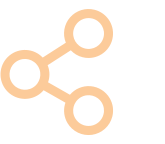
Social network perspective
The person’s support network is involved, as agreed with them.

Flexibility and mobility
Meetings are adapted to the needs of the person and their support network.

Responsibility
The team takes the lead to coordinate support.

Psychological continuity
The team takes responsibility for long-term continuity of care.

Tolerance of uncertainty
Where possible, the team avoids premature decisions about the nature of the crisis, diagnosis, and medication.

Expanding the dialogue
Equal dialogue is encouraged between the person, their support network, and the treatment team
About Open Dialogue Centre
The Open Dialogue Centre was established to enable experts from different fields to work together with individuals and families by adapting the principles of Open Dialogue. The Open Dialogue Centre provides the training, supervision and support needed to confidently integrate Open Dialogue into any setting.
Our Vision
To transform the provision of mental health care in Australia.
Our Mission
To support organisations in delivering person-centred mental health care that involves family and community.
Over the next 5 years, our aim is threefold:
To raise awareness of the value and potential of Open Dialogue in Australia’s mental health system and community services, Australian schools and Universities.
To provide training in OD principles with the tools and support needed for implementation so that any hospital, practice, school or service can adapt with responsive and compassionate approaches.
To develop the evidence base for Open Dialogue in a way that enables clinical and non-clinical professionals and teams to demonstrate the effectiveness and impact of new approaches.
Open Dialogue Centre History
Grant Family Philanthropy approaches St Vincent’s Hospital Sydney
to discuss a collaboration on enhanced family and peer support programs.
The Centre for Family Based Mental Health Care is established
as a collaboration between University of Sydney, St Vincent’s Hospital and Grant Family Philanthropy. Funded by St Vincent’s Curran Foundation, Grant Family and The Michael Crouch Foundation.
Open Dialogue principles introduced to The Centre for Family Based Mental Health Care
Professor Niels Buus, recruited by University of Sydney, becomes Director of ‘The Centre.’ The Cunningham Foundation funds the development of training resources for Open Dialogue in Australia. Several clinical staff from Alfred Health (Victoria) and Nepean Blue Mountains Local Health District (NSW) are trained in Open Dialogue.
Grant Family Philanthropy approaches Relationships Australia NSW
to discuss a joint venture to establish the Open Dialogue Centre.
Centre of Excellence in Open Dialogue
Professor Buus, GrantFamily Philanthropy and Relationships Australia NSW collaborate with Alfred Health Child and Adolescent Health Services and Nepean Blue Mountains LHD to develop Centres of Excellence in Open Dialogue practice.
The Open Dialogue Centre is launched
as a joint venture between Relationships Australia NSW and GrantFamily Philanthropy.
The Open Dialogue Centre board and team includes experts in different fields including philanthropy, investment for growth, psychiatry, psychology, organisational change, communications and engagement, healthcare policy, business strategy, and academic research.
Our board
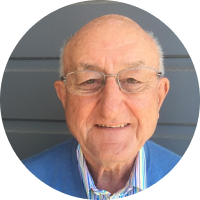
During his 60-year business career, John has been a management consultant, investment banker, venture capitalist and company director. In 2005, he led the Review of Health and Medical Research Investment for the Australian Government.
In later years, he has become actively engaged in philanthropy, as Chairman of The Grant Family Charitable Trust (GrantFamily Philanthropy), which he established in 2009.
Grant Family Philanthropy provides support to young people suffering from mental illness, social deprivation and homelessness. It seeks to collaborate with other organisations and people wanting to improve outcomes in the Australian health system.
Grant Family Philanthropy, along with the Michael Crouch Family, founded the Centre for Family-Based Mental Health Care at St Vincent’s in 2015, which through University of Sydney recruited Professor Neils Buus from Denmark as the Director, and introduced research and training in Open Dialogue into Australia.
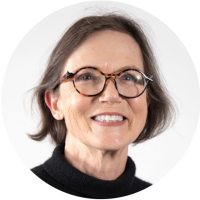
Wendy has extensive senior management experience in finance, risk and corporate governance, having spent 40 years as full time Chief Financial Officer in health, social enterprise, retail and advertising related companies and organisations.
As a finance professional Wendy is experienced in all areas of finance systems and reporting, risk, strategy (planning & implementation), endowments, all aspects of governance, leadership and creating a performance culture.
Wendy has also held Non–Executive Board positions of Director and Treasurer in not-for-profit organisations and mentored not-for-profit finance professionals.
Wendy holds a Bachelor of Economics and more recently a Master of Fine Arts and is a Fellow of the Institute of Chartered Accountants
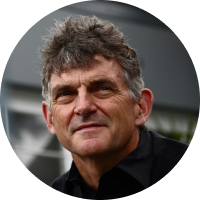
Keith has been intimately involved in the Open Dialogue Centre’s inception and preparation for its launch. He has over 20 years’ experience in the governance and management of non-profit organisations.
Keith is a member of the NSW Mental Health Community Advisory Council, and is also the Chair of the Board for the Foyer Foundation and the Board of the Constellation Project. In past roles he has been Chair of the Board of Wentworth Community Housing and the CEO of the Australian Society of Plastic Surgeons. He was a senior executive at The Benevolent Society for 10 years from 2001.
Prior to these roles, Keith had a successful career in investment banking, working in London, Italy, South Africa and Asia, including as a Director at Deutsche Bank Australia between 1989 and 1999.

Pia is an independent consultant in healthcare strategy and operations, specialising in health system redesign and improvement and Co-Founder of Clean Slate Clinic, a for-purpose business that provides home-based withdrawal services for individuals dependent on alcohol.
She is a health economist by background and has worked across public and private healthcare for the last 20 years, including as the national Lead Partner for Healthcare at Deloitte Australia, and Head of Specialised Commissioning in the UK NHS.
She is passionate about equitable access to healthcare, and creating health systems that improve health and social outcomes for all.
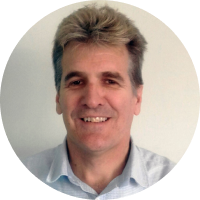
Dr Paul Denborough is a child and youth psychiatrist and is Clinical Director of The Alfred Child and Youth Mental Health Service as well as South East Melbourne Headspace.
Part of this service is Headspace Early Psychosis across the southern region of Melbourne which has been implementing Open Dialogue practices across all of the teams. Paul has been working closely with the Open Dialogue Centre in terms of training staff in the approach, as well as implementation.
Paul has been heavily involved in the Royal Commission into Victoria’s Mental Health System and the Open Dialogue approach is consistent with the values and principles endorsed in this, and a way forward in improving and modernising the mental health system.
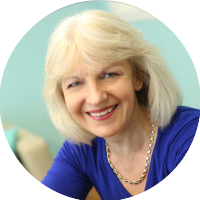
Christine Morgan has worked across a range of areas and is committed to using her corporate, strategic, legal and business skills to further the work of the not-for-profit sector. She has a particular interest in mental health and well-being suicide prevention and community partnerships. In her immediate past role as CEO of the National Mental Health Commission and National Suicide Prevention Advisor, Christine’s focus was to identify how to improve our systems to ensure equitable access to evidence based care and support across the spectrum of prevention, treatment, management and recovery from mental ill health, suicide risk and distress. She is particularly passionate about lived experience leading and informing such work and change. Christine is continuing this work with her ongoing engagements with the education, mental health and legal sectors.
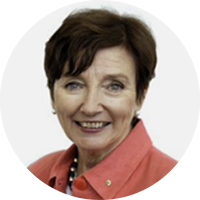
Kathryn has contributed in a wide range of leadership positions in public and private companies, government bodies and non-profit organisations. She was an elected Councillor to the City of Sydney Council from 1995 until 2004.
She is a Director of the Sydney Opera House Trust, the Chair of the Ministerial Advisory Council on Ageing, Chair of Lifestart Cooperative and a Director of Relationships Australia (NSW). Kathryn was also a member of the Schools Funding Review Panel and also led an Inquiry into the NSW Catholic Schools Funding Process; as well as an Inquiry into NSW Retirement Villages.
Kathryn’s non-profit activities include or have included: Director Bell Shakespeare Company; Chair Salvation Army Red Shield Appeals; Chair of Save the Children Australia and Chair of Sydney Peace Prize Foundation.
She is a graduate of UNSW and received an Order of Australia in 2001 for services to social welfare, local government and philanthropy awareness.
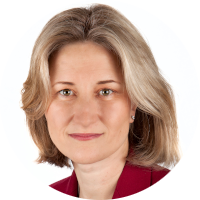
Kiera has extensive board and senior management experience, having spent 15 years working in investment banking and over 10 years as a full time non executive director. Kiera has extensive financial and strategic assessment knowledge combined with mergers and acquisitions, capital market and corporate governance experience. In addition to being a Non-Executive Director of ASX listed Adairs Limited, Kiera is a Non-Executive Director of Future Generation Global Investment Company Ltd. Kiera also holds a number of unlisted non-executive directorships including Samuel Smith and Sons Pty Ltd (incorporating Yalumba Wine Co and Negociants Fine Wine Distributors) and investment fund manager Perennial Partners. She is also a Trustee of the Art Gallery of New South Wales. Kiera is a former Non-Executive Director of Pacific Brands Limited and holds a Bachelor of Economics and is a member of CEW and GAICD.
Our team

Keith has been intimately involved in the Open Dialogue Centre’s inception and preparation for its launch. He has over 20 years’ experience in the governance and management of non-profit organisations.
Keith is a member of the NSW Mental Health Community Advisory Council, and is also the Chair of the Board for the Foyer Foundation and the Board of the Constellation Project. In past roles he has been Chair of the Board of Wentworth Community Housing and the CEO of the Australian Society of Plastic Surgeons. He was a senior executive at The Benevolent Society for 10 years from 2001.
Prior to these roles, Keith had a successful career in investment banking, working in London, Italy, South Africa and Asia, including as a Director at Deutsche Bank Australia between 1989 and 1999.

Shubhangi is a registered psychologist with extensive experience working across various verticals of the government and non-government mental health sectors in Australia and New Zealand.
She has experience working at strategic and grass-roots levels, with diverse groups and populations, both in one-on-one and group settings. Her areas of expertise include working with organisations and providing consultation on strategic vision, service design, development, implementation and delivery, and project and change management.
Shubhangi is committed to enhancing the voice of lived experience and creating mental health services that are holistic and more responsive to individual needs. She has a specific interest in organisational change and mental health system reform and is not afraid to challenge the status quo in order to achieve this.
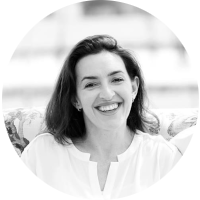
Lisa has worked across a broad range of industries, from publishing to pharmaceuticals, with experience managing the co-ordination and implementation of complex projects.
She has experience co-ordinating projects, assisting in planning, organising, and implementing systems. She has worked across teams where collaboration and communication are essential in bringing groups together to enhance positive outcomes. She has been crucial to managing the flow of the office, while creating processes and systems to enhance company operations.
Lisa has an eye for detail, with the ability to intuitively understand the relationship between tactical actions and strategic importance. She has spent many years running her own business developing websites for a broad customer base.
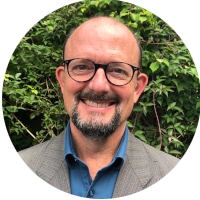
Mark Hopfenbeck, a distinguished social anthropologist, serves as an assistant professor at the Norwegian University of Science and Technology.
His expertise in health and social policy extends to his role as a visiting fellow at London South Bank University and an individual partner at Oxford University’s Collaborating Centre for Values-based Practice.
With a focus on mindfulness and relational welfare, Mark is deeply involved in research to enhance mental health care, including crisis intervention and the Open Dialogue approach, both nationally and globally

Kate is a strategic advisor and consultant specialising in organisational narratives and engagement strategies to enable growth and change initiatives.
As founder and co-director of Streamer Strategy, she works closely and collaboratively with organisations in a range of sectors to unlock opportunities and identify barriers through engagement with the people and communities who are core to a collective story of success.
Kate has worked in partnership with organisations in health, education, international development and social change to support teams as they launch cross-sectoral initiatives on a global stage. She has developed innovative methods with visual techniques, re-brand strategies and creative campaigns for clients working through the full gamut of complex change initiatives. She develops the methods to engage new audiences and supporters to strengthen the sustainability of startups, programs and organisations.
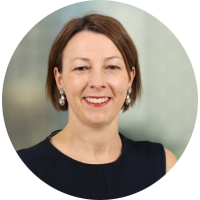
Anne-Louise is the head of strategy and implementation for ODC, specialising in health system redesign and improvement.
She is a Speech Pathologist by background and has worked about public, not-for-profit and private healthcare for the last 25 years, including as Manager Clinical Operations at Northern Sydney Local Health District, Director in the Healthcare team at Deloitte Australia and National Manager Services Planning at Calvary.
Anne-Louise is committed to helping clients to tackle the issues that impact individuals, families, and communities, for a sustainable health and wellbeing care system for all.
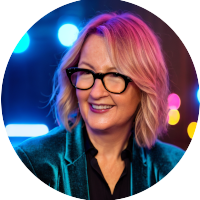
Jan is an entrepreneur, founder and leader in a range of national and global organisations and alliances to achieve purposeful, courageous and imaginative social change.
As a thought leader, keynote speaker and author in education and modern work, social innovation, health and wellbeing, Jan is a liberating force for change, unlocking new thinking and connections between people, disciplines, sectors and domains.
Jan is the Founder & Principal of AdaptabilityQ which provides strategy, systems change and leadership support to CEO’s across a diverse range of clients in Australia and globally.
Jan is Co-Chair/Founder of Learning Creates Australia whose mission is to support the reimagining of secondary school education; Co-Convenor, Foyer Foundation’s FoyerInvest Consortium to address youth homelessness, education and employment for young people; Chair, Cool.org Australia’s first edtech platform creating comprehensive teaching resources for educators here and globally on sustainability, equity, and social justice issues; Director Innovation Unit ANZ, Save the Children Impact Fund and Global Village Schools.
With her husband, David James, Jan is co-Founder of Be Well Health and Longevity.
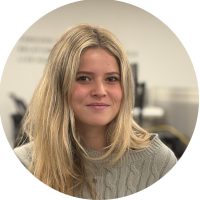
Claudia is a student currently studying a Bachelor of Business Administration and Bachelor of Psychology at Macquarie University.
Her interest is in merging psychological insight into the business environment.
Claudia aspires to be able to continue developing key skills in understanding organisational psychology and how this will apply to future career pathways.
Her goal is to undertake learning opportunities and gain experience within her current roles as both a student and employee in order to enhance her offerings as a future
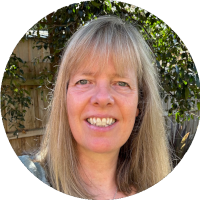
As Lead Principal Consultant, Lucia co-leads the Systems Transformation Unit at Clear Horizon, which helps organisations create conditions for systems transformation through Learning Partnerships. Her work supports organisations in making the strategic shift to systems transformation, rethinking evaluation practice and facilitating learning to accelerate systems transformation.
Until recently, Lucia held executive roles with the Brotherhood of St Laurence, an organisation that works to end poverty in Australia. Prior to that she worked with World Vision, leading teams that were recognised as leaders in innovation and evaluation of international development programs.
Lucia is the Chair of the ODC’s Research & Impact Committee, and supports the team through strategy, evaluation and learning.
LinkedIn
Jan is an entrepreneur, founder and leader in a range of national and global organisations and alliances to achieve purposeful, courageous and imaginative social change.
As a thought leader, keynote speaker and author in education and modern work, social innovation, health and wellbeing, Jan is a liberating force for change, unlocking new thinking and connections between people, disciplines, sectors and domains.
Jan is the Founder & Principal of AdaptabilityQ which provides strategy, systems change and leadership support to CEO’s across a diverse range of clients in Australia and globally.
Jan is Co-Chair/Founder of Learning Creates Australia whose mission is to support the reimagining of secondary school education; Co-Convenor, Foyer Foundation’s FoyerInvest Consortium to address youth homelessness, education and employment for young people; Chair, Cool.org Australia’s first edtech platform creating comprehensive teaching resources for educators here and globally on sustainability, equity, and social justice issues; Director Innovation Unit ANZ, Save the Children Impact Fund and Global Village Schools.
With her husband, David James, Jan is co-Founder of Be Well Health and Longevity.
Claudia is a student currently studying a Bachelor of Business Administration and Bachelor of Psychology at Macquarie University.
Her interest is in merging psychological insight into the business environment.
Claudia aspires to be able to continue developing key skills in understanding organisational psychology and how this will apply to future career pathways.
Her goal is to undertake learning opportunities and gain experience within her current roles as both a student and employee in order to enhance her offerings as a future
With an undergraduate degree in psychology and Master of Adult Education, Jodie is a consultant who has worked in health sciences and medical education and training for over twenty years.
She now focuses on postgraduate education, consulting to: various specialist medical colleges; universities; surgical associations; and private organisations in learning and development and advocacy. Her areas of expertise include designing curricula, developing assessment strategies, creating continuing professional development programs and writing online learning modules.
Jodie also prepares standards of practice, accreditation systems and drafts policy and regulation for specialist medical training. She is currently completing a Master of Health and Medical Law and has a particular interest in medical ethics and is completing research in relation to informed consent and gender diversity.

Niels Buus
Special Advisor
Niels is Professor of Nursing at Monash University and specialist in qualitative research and its methodologies.
He is a mental health nurse and with a keen interest in the adoption, implementation, and practices of Open Dialogue and similar systemic approaches to psychotherapies. His work leverages partnerships across Monash University, Australia and internationally to lead research and implementation of Open Dialogue.
Between 2016 and 2021, Niels was Professor of Mental Health Nursing at University of Sydney and was the Director of the Centre for Family-Based Mental Health Care at St. Vincent’s Private Hospital Sydney. Niels is also Adjunct Professor at the University of Southern Denmark. In this role, he collaborates with Danish Open Dialogue clinicians and researchers.
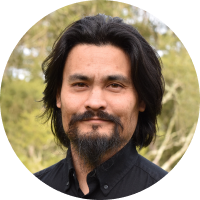
Ben Ong
Special Advisor
Ben is a registered psychologist and family therapist with over 17 years of experience working in public mental health and juvenile justice services.
He first learned about Open Dialogue in 2012 during his Masters of Couple and Family Therapy. Open Dialogue has since become an essential part of Ben’s work with families and young people accessing mental health services.
Ben’s academic interest in Open Dialogue is centred around spoken interaction and discovering the types of conversational practices that constitute dialogical conversations. This interest has culminated in a PhD research project completed in 2021.
Ben is currently employed as a research fellow at Monash University utilising qualitative research methods and particularly Conversation Analysis to investigate Open Dialogue and family interactions.
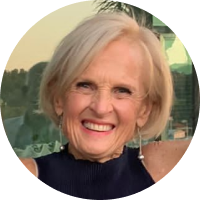
Kathy Wood
Planning and Project Advisor
Kathy Wood is Head of Strategy, Business Planning and Project Governance at Relationships Australia NSW (RANSW), having had an extensive career working in the social and health services sector and academia.
Her qualifications are in social work and social policy, complemented over the years with post qualification training in counselling, executive coaching, family dispute resolution, project management, leadership and strategic governance. Kathy’s executive and senior management roles include Head of Operations, Executive Officer, and General Manager of Training and Research, Business Restructure.
Kathy has been an active member of the Open Dialogue Centre operational committee in her executive role at RANSW, with a strong and informed commitment to pursuing systemic approaches to addressing mental health challenges, which Open Dialogue offers.


